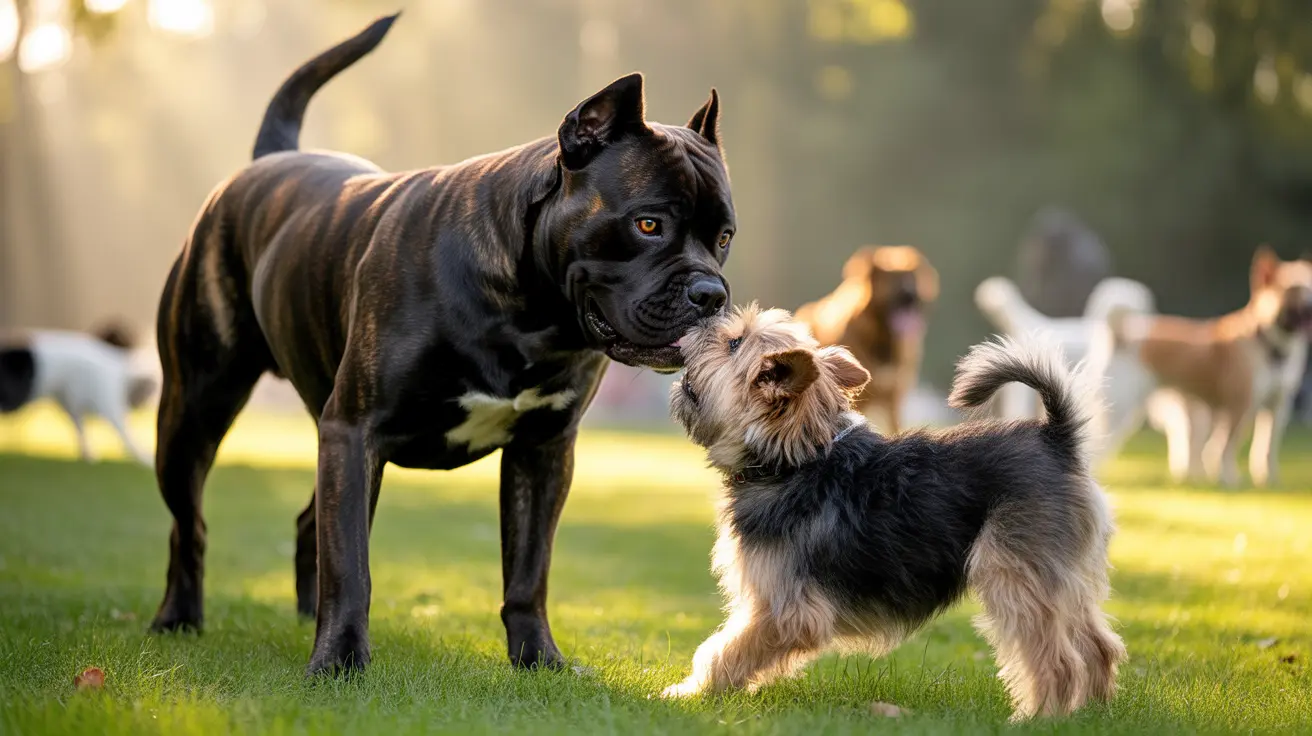Understanding Cane Corso Temperament with Other Dogs
Cane Corsos possess distinct personality traits that influence their interactions with other dogs. Their guardian heritage and impressive size (often exceeding 100 pounds) mean they require thoughtful handling in multi-dog situations.
Key temperament factors include:
- Strong territorial instincts
- Natural protective tendencies
- High prey drive
- Independent nature
- Same-sex sensitivity
The Critical Role of Early Socialization
Proper socialization during puppyhood is absolutely essential for developing a Cane Corso that interacts well with other dogs. The critical window occurs between 3-16 weeks of age, during which positive exposure to various dogs helps establish lasting social skills.
Effective socialization should include:
- Controlled interactions with well-mannered dogs
- Exposure to different sizes and breeds
- Positive reinforcement during encounters
- Professional guidance and structured settings
Size and Sex Considerations
When integrating a Cane Corso into a multi-dog household, size matching and sex pairing significantly impact success rates. Generally, Cane Corsos do better with:
- Dogs of similar size
- Opposite-sex companions
- Breeds with complementary energy levels
- Dogs without dominant personalities
Special Considerations for Small Dogs
Housing Cane Corsos with small dogs requires extra caution due to their natural prey drive. Success is most likely when:
- The Corso is raised from puppyhood with small dogs
- Extensive positive exposure occurs during critical development
- Careful supervision and management are maintained
- Clear boundaries are established and enforced
Essential Training and Management Strategies
Maintaining harmony in a multi-dog household with a Cane Corso demands consistent training and management approaches:
Training Fundamentals
- Strong recall commands
- Solid impulse control
- Proper leash manners
- Reliable "leave it" response
Management Techniques
- Separate feeding areas
- Controlled resource access
- Supervised interactions
- Safe separation when needed
Long-term Success Tips
Maintaining positive relationships between your Cane Corso and other dogs requires ongoing attention:
- Regular training refreshers
- Continued socialization opportunities
- Consistent rules and boundaries
- Professional support when needed
Frequently Asked Questions
Are Cane Corsos generally good with other dogs in a multi-dog household?
Cane Corsos can be good with other dogs when properly socialized and managed. Success depends on early training, appropriate matching, and consistent household management.
How important is early socialization for a Cane Corso to get along with other dogs?
Early socialization is crucial for Cane Corsos. The experiences they have during their critical development period (3-16 weeks) significantly shape their future interactions with other dogs.
Can Cane Corsos safely live with small dogs, or does their prey drive make this risky?
While Cane Corsos can live with small dogs, it requires careful consideration and management. Success is most likely when the Corso is raised from puppyhood with small dogs and receives proper training.
What training and management strategies help prevent aggression between Cane Corsos and other dogs?
Key strategies include consistent training, clear boundaries, separate feeding areas, supervised interactions, and positive reinforcement of calm behavior around other dogs.
Does pairing a Cane Corso with a same-sex dog increase the risk of aggression or conflict?
Yes, same-sex pairings typically present a higher risk of conflict with Cane Corsos. Opposite-sex pairings generally offer better chances for harmonious relationships.
Remember that every Cane Corso is unique, and success in a multi-dog household depends on your commitment to proper training, socialization, and management. With the right approach and dedication, these magnificent dogs can thrive alongside canine companions.






